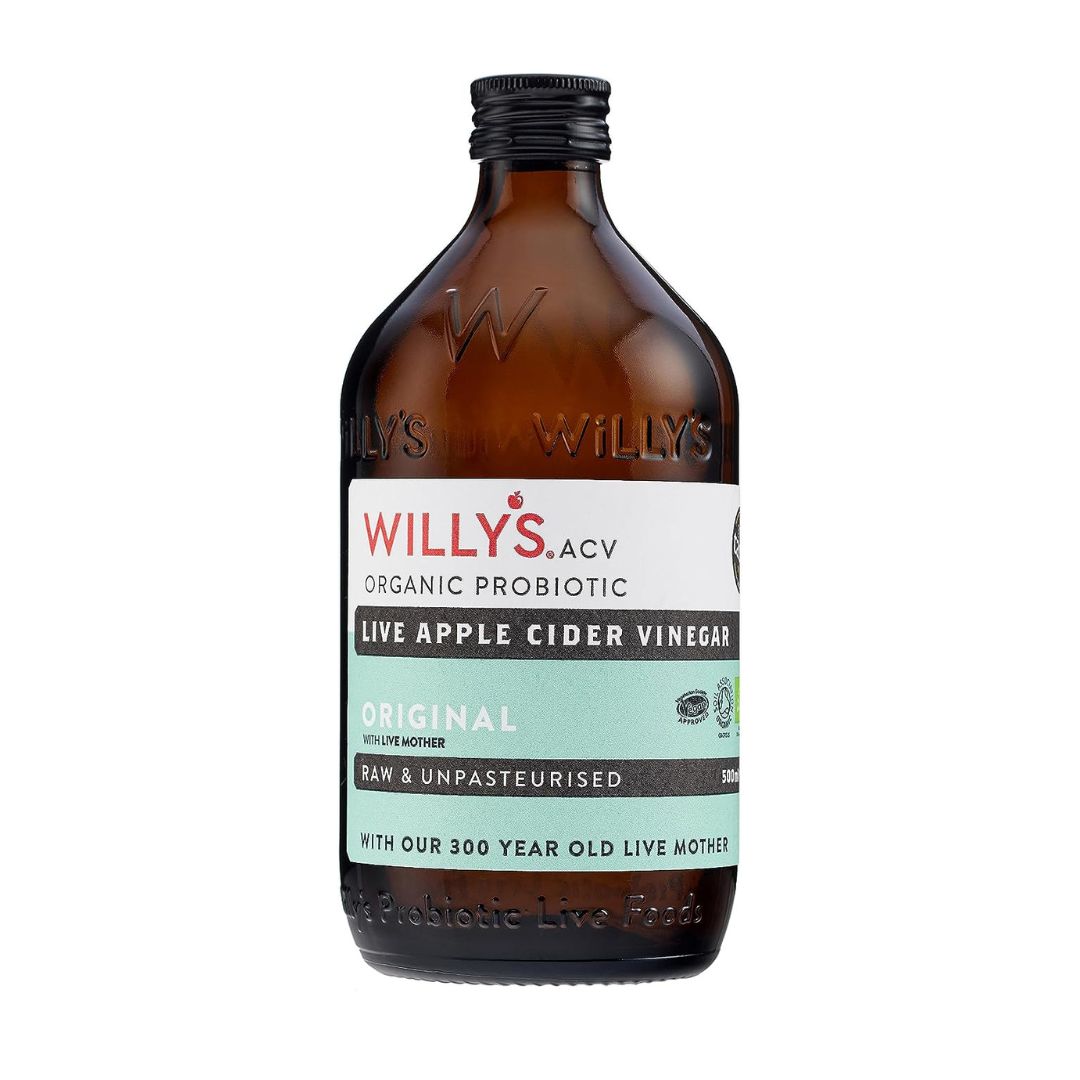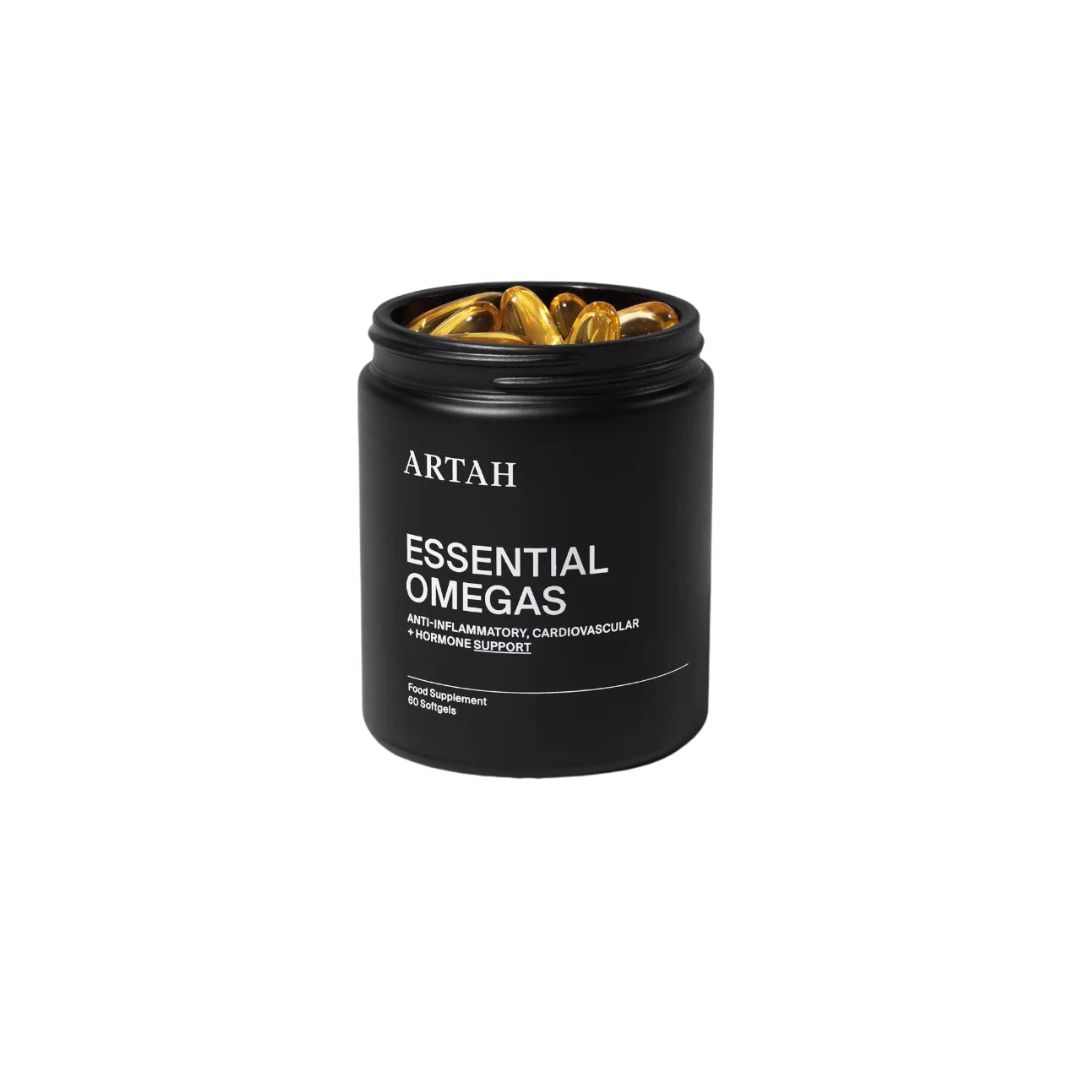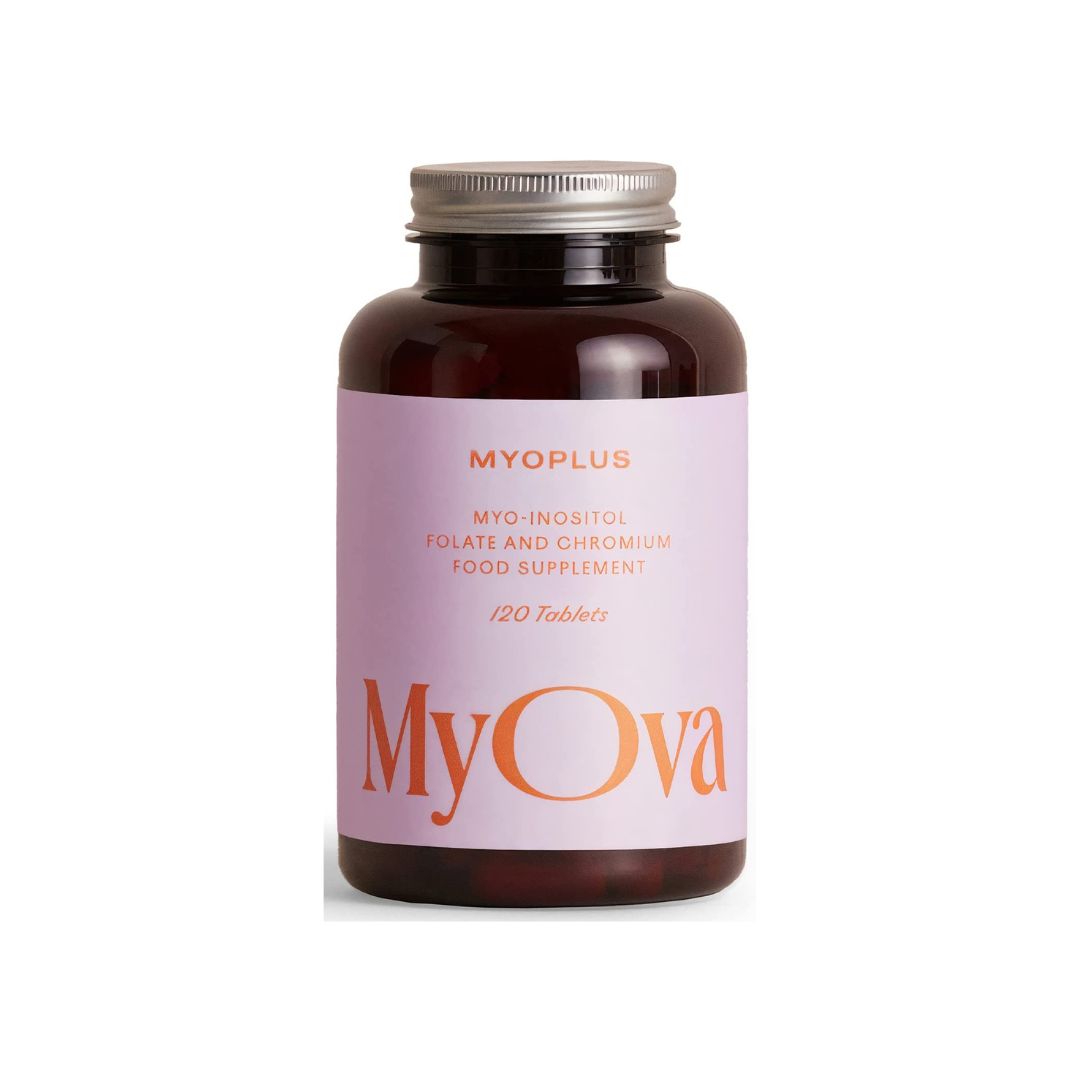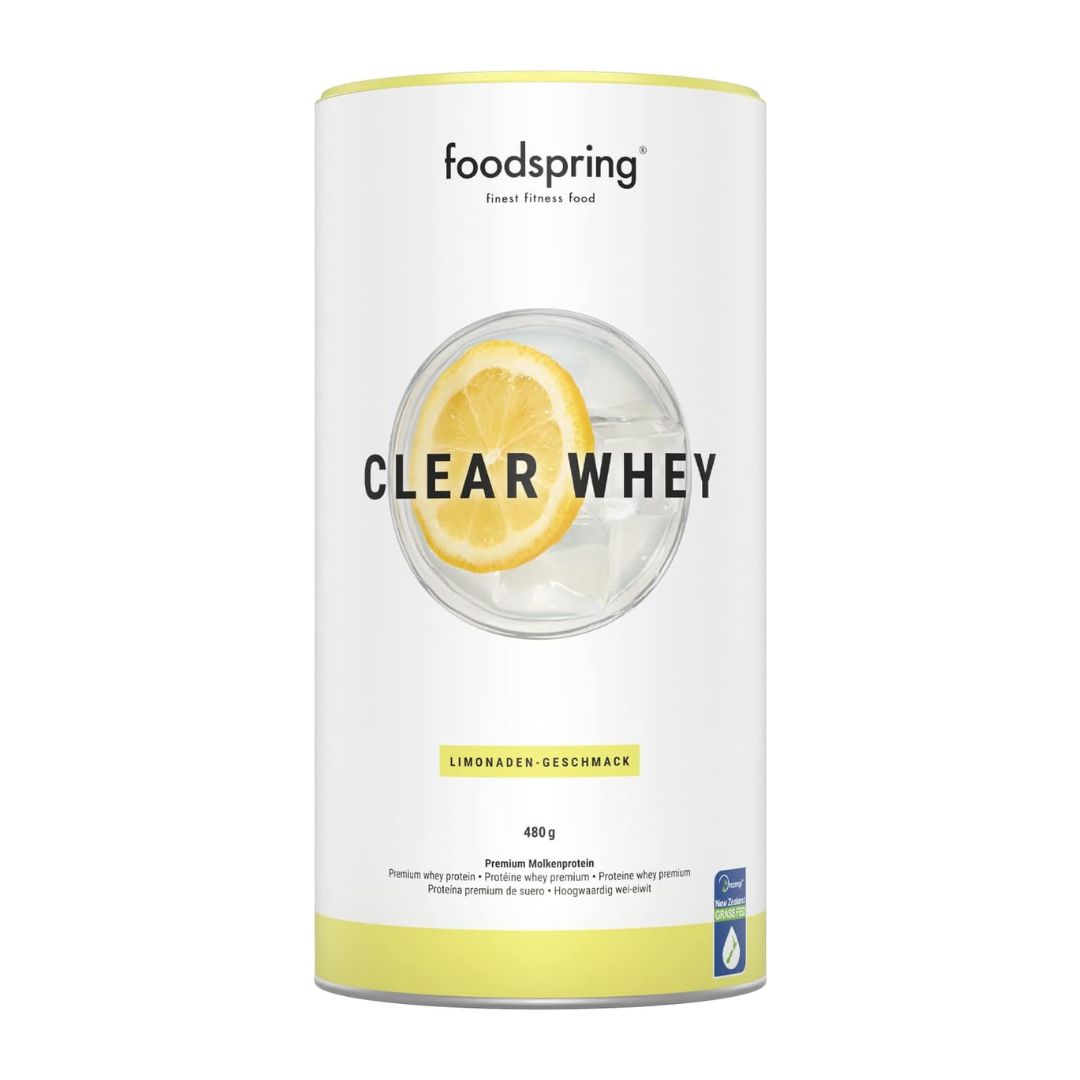I'm a Health Editor who's noticed the biggest changes to my body this year - and believe this tweak is to thank
Nine months in, the differences are hugely noticeable.
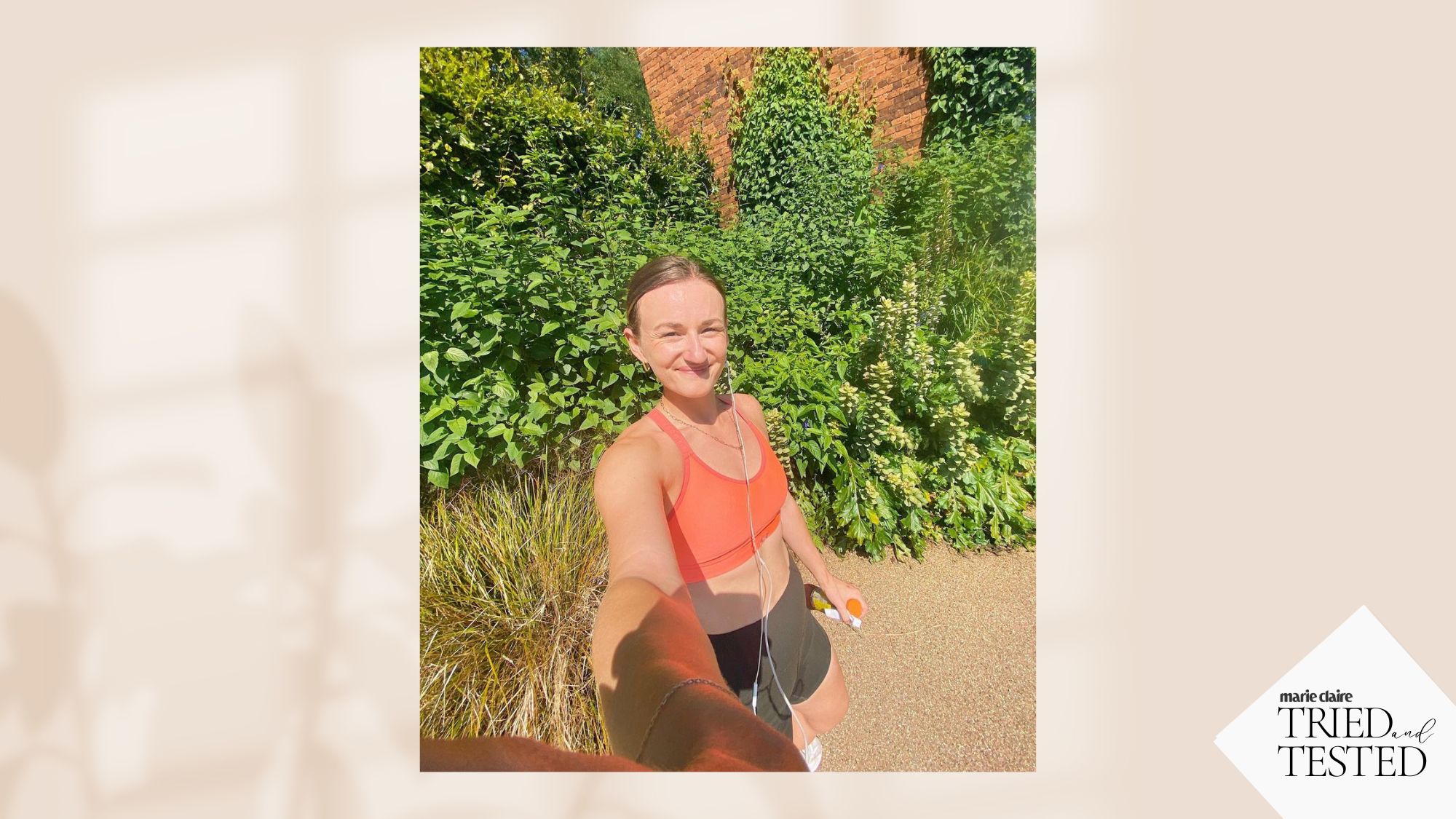
As someone who's worked in the health industry for over seven years now, it's fair to say I've tried a thing or two in my time. From bulletproof coffee, to intermittent fasting, to 37-mile ultramarathons in the snow (yep, that one was fun), I'm always the first to offer to sweat test the latest workout or try the latest viral trend in the name of journalism.
While eating in the morning may not sound like a wellness trend to you, in the right context, I can assure you it is. Come the end of last year, I couldn't go on TikTok or Instagram without seeing a Glucose Goddess post pop up on my feed. Run by biochemist Jessie Inchauspé, the premise of the account was simple: to share graphs illustrating scientific research on how food, exercise and more can impact blood sugar spikes and advise on the various Glucose Goddess hacks that could help flatten these spikes.
Wondering how this affects you? Well, far too many of us are experiencing daily blood sugar spikes which can cause inflammation, lethargy and, over time, conditions like kidney disease, heart disease and even diabetes.
As someone with doctor-diagnosed polycystic ovarian syndrome, I knew this was me. Those with PCOS are more prone to insulin resistance and, in turn, glucose spikes. Despite exercising regularly and eating nutrient-dense foods, come the end of last year, I felt constantly lethargic and knew something had to change.
Wondering what eating in the morning has to do with all of this? Good question. According to Inchauspé, eating within an hour of waking up is one of the most important things you can do to flatten your blood glucose spikes. Without doing so, she shares that your insulin begins to spike before you've even started your day.
As someone who used to wait until around 10am when I'd settled at my desk to eat, giving my stomach a fourteen-hour "fast" in between meals after previous advice from a nutritionist, eating first thing took some getting used to. That said, I've noticed some serious changes to both my body and health this year and believe that changing the timing of my first meal of the day could, in part, be to thank.
Keen to read how I got on? Keep scrolling, and don't miss my first-person reviews of the inflammation diet, greens powders, and daily apple cider vinegar shots, while you're here.
Marie Claire Newsletter
Celebrity news, beauty, fashion advice, and fascinating features, delivered straight to your inbox!
Could eating in the morning lower my inflammation levels and change my body?
Is eating in the morning good for you?
First things first - a bit from Inchauspé on why, exactly, eating first thing can be helpful in flattening your hormone levels.
"First thing in the morning, when we are in our fasted state, our body is at its most sensitive to glucose," she shares in her book, The Glucose Goddess Method. Kirsten Oddy, BANT Registered Nutritionist, expands: "Morning is when many individuals are most insulin sensitive. By eating a well-balanced meal soon after waking, you can make the most of this increased insulin sensitivity - for some, this has been shown to also help regulate blood sugar throughout the day, which can help to prevent energy crashes, cravings, and overeating."
It's important to note, for the sake of this article, that it wasn't the only change I made. I've made sure the majority of meals and snacks I eat are a balance of fibre, protein, fat and carbohydrates, consuming the fibre first, then protein and fat, then carbohydrates. I no longer drink coffee on an empty stomach, eat sweet treats after a meal now, rather than as a snack, aim to move for five to ten minutes after meals and drink a spoonful of apple cider vinegar each morning or before particularly carb-heavy meals. (All of the studies backing up these "hacks" as genuinely helpful lifestyle tweaks are listed on Glucose Goddess website here).
That said, I'm now nine months into eating within an hour (give or take a little) each morning and have been surprised by how much I've seen my body change. Naturally, it's a combination of all of the above factors, but I feel eating a savoury meal early doors has triggered a series of important changes. Keep scrolling to find out what.
A post shared by Jessie Inchauspé ☀️ (@glucosegoddess)
A photo posted by on
Months one to three
For the first few weeks, I'll admit - eating within an hour of waking up felt like one of the biggest hurdles in my new routine. The reason I decided to give the Glucose Goddess hacks a go was because they didn't promote restriction or cutting anything out - rather, they encouraged reordering the order in which you eat your food and focusing on enjoying balanced, nutrient-rich meals and snacks.
I didn't mind the savoury breakfasts or waiting until after my breakfast to have my coffee. I'm a big fan of veg-packed smoothies and eggs and actually came to quite enjoy my coffee "dessert" (not to mention, feel a million times better and now rarely get coffee shakes or stomach pain post-coffee).
That said, eating first thing proved more challenging. It normally takes me a few hours after I wake up before I'm hungry or fancy food, and initially felt torn between honouring my hunger signals and eating within the hour window.
Needless to say, a month or so into trying Inchauspé's way of eating, I started to notice big changes. I was waking up around 7.45 a.m. noticeably hungry and looking forward to my breakfast first thing, a big change from earlier in the month when I hadn't been hungry at all.
Months three to six
By March, I'd practiced enough savoury, early-morning breakfasts to know that the key to a successful eating-within-an-hour-of-waking meant meal prep - and lots of it. (Another of Inchauspé's hacks, which is widely scientifically backed, is to eat a savoury breakfast to avoid starting your day with a blood sugar spike).
On Sunday, I'd roast some veggies and make either egg muffins, tofu muffins, or hard boil some eggs for the week ahead. Having cucumber and carrot sticks on hand was also hugely helpful for making veggie-packed breakfasts and snacks easily accessible.
On the days when I hadn't meal prepped or simply didn't have time to whip something up, I'd fall back on creamy bowls of Greek yoghurt or opt for avocado, smoked salmon or nut butter on rye bread. Knowing that my breakfasts didn't always need to be fancy or complicated helped a lot - both sourdough and rye bread have been confirmed as good for glucose levels as long as paired with protein, fat and fibre.
This was helped by making a conscious effort to stop comparing my meals to what others were posting on social media. While my fiancé occasionally made small jokes about my carrot-stick-and-rye breakfast ensembles, he was hugely supportive and further helped me to realise that it didn't really matter what others were eating. It only mattered how I felt and if the changes were working for me.
Luckily, they really were. By this point, I'd been trying the hacks for long enough to notice a huge difference in my appearance, energy levels, and more. My skin was clearer than it had been in years and my bloating was non-existent - two things I'd struggled with for years as a teen and young adult. Similarly, I had more get up and go, was sleeping better, and was noticing less brain fog during the day. While never my intention, I'd also lost a bit of weight. I couldn't quite believe how different I felt from making just a few small tweaks to my lifestyle.
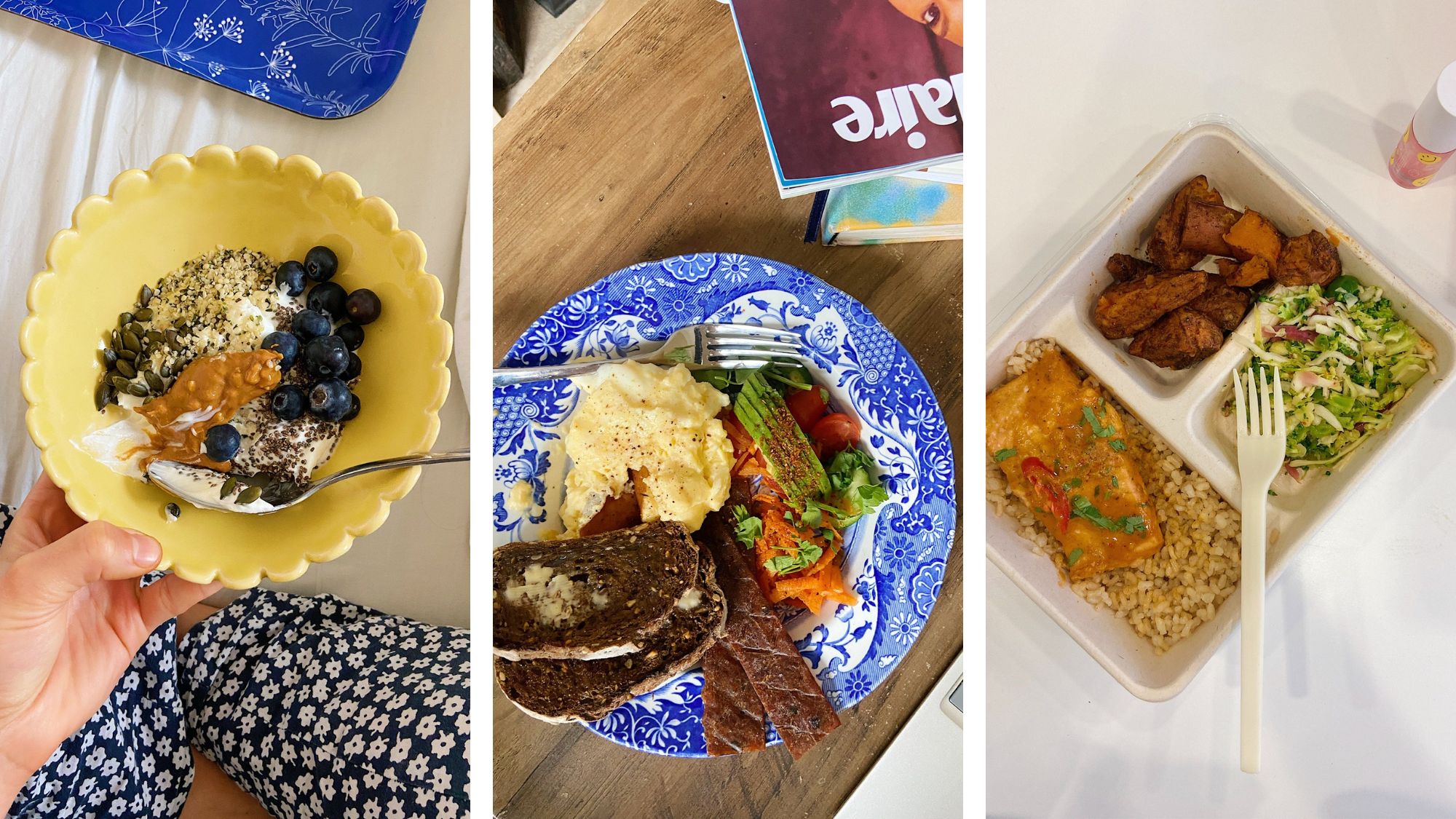
Some of the breakfasts Ally ate
Months six to nine
Come month six and while I now always have a light snack when I first wake - either a handful of almonds, seed crackers with nut butter, or a small bowl of Greek yoghurt with seeds and blueberries - my biggest learning has been adapting the "eating within an hour" guidance to suit my own personal needs.
When I have time to meal prep or am working from home, eating early is no problem. That said, as with everything, sometimes life gets in the way, and so being flexible and focusing on what I was eating - nine times out of ten, a balance of fibre, protein, fat and carbs - rather than when became a better use of my time.
When I'm in the office, a light snack first thing and then a balanced meal of eggs, vegetables and rye around 10am works for me. This little-and-often approach staves off hunger pangs and keeps me full until lunchtime.
For most, the thought of whipping up a full omelette first thing will feel both stressful and time-consuming. But let me ask you this: if it could guarantee better energy, focus, satiety, skin and more, would you make the time? I feel in better health than I ever have and largely have the Glucose Goddess hacks to thank.
All three experts I spoke to for this piece confirmed that eating a nutrient-dense meal first thing is beneficial for both blood sugar spikes and hormone levels (more on that below). Think about it: we prioritise eating a balanced meal at both lunch and dinner, why don't we do so for breakfast, too?
Shop our go-to blood sugar spike aids now:
What nutrition experts have to say
So, is eating within an hour of waking up the key to curbing blood sugar spikes and in turn, reducing cravings, improving energy, sleep and brain function, and improving polycystic ovarian syndrome (PCOS) symptoms?
According to nutritional therapist and specialist in hormonal imbalance Lauren Johnson Reynolds, it can be. "While it's tempting to skip breakfast, the way you start your day hugely impacts your blood sugar balance and energy for the rest of the day," she explains.
How so? Well, starting your day with a meal that keeps your blood sugar stable in the hours afterwards will help it to stay stable all day long, she explains, preventing a morning spike that will start a blood sugar rollercoaster first thing. "Your cortisol is also naturally at its highest in the morning and eating breakfast helps to bring that level down - key for anyone with a hormonal imbalance," she goes on.
She maintains that there’s a wealth of evidence to support this, with one 2012 study showing that women who skipped breakfast had a higher cortisol level throughout the day and a higher cortisol surge after lunch. "Another 2013 paper found that a breakfast containing at least 30g of protein slowed the release of our hunger hormone ghrelin and meant that less was eaten throughout the day."
Try one of the following:
- Scrambled eggs and vegetables
- An omelette with sourdough
- Smoked salmon, avocado and rye bread
- Tofu muffins with vegetables and feta
- Greek yoghurt with seeds and nut butter
- Chia seed pudding with blueberries and nuts
- A vegan protein smoothie with berries.
That said, Jodie Relf, PCOS dietician and spokesperson for MyOva maintains that there isn't enough research to conclusively link eating within an hour of waking up to a steadier hormone state.
"Research has shown that those who skip breakfast tended to have lower quality diets, were less physically active, had higher BMI’s, higher fasting insulin levels and higher cholesterol levels," she explains. "A possible explanation for this is that those who skip breakfast consume more foods that are higher in fat, energy and cholesterol and have lower intakes of fibre, vitamins and minerals," she goes on.
So, is there an optimal time to have breakfast? In her professional opinion, there isn't enough research on this at current to make a solid recommendation. "The optimal time to have breakfast will vary from person to person based on your appetite in the mornings," she shares. "I usually advise my clients to try to have something within the first two hours of waking, as anything beyond this and you run the risk of glucose levels dropping and experiencing cravings for sugary foods to quickly bring those glucose levels back up again."
The most important thing? Making a nutrient-dense breakfast a priority whatever time you eat it, she shares. "If you skip breakfast, it will be difficult to consume all the nutrients you need throughout the rest of the day. You also run the risk of overeating later in the day and making poorer food choices as your body craves energy," she shares.
Do note, as well: she goes on to add that the two-hour guideline is a little bit of a stab in the dark and isn't an exact science. That said, she reckons it could act as a helpful guideline to provide structure to your mornings. "That said, you shouldn’t feel as if you’ve failed if, on the odd morning, you’re not able to follow this guideline or are so busy that you forget. Breakfast at some point in the morning is better than no breakfast at all."
Bottom line? The most important thing when it comes to working out what diet works best for you is to listen to your body. If you'd like further science-rooted guidance, do book an appointment with a dietician, nutritionist or GP - they're best positioned to help you with any queries.

Ally Head is Marie Claire UK's Senior Health and Sustainability Editor, nine-time marathoner, and Boston Qualifying runner. Day-to-day, she heads up all strategy for her pillars, working across commissioning, features, and e-commerce, reporting on the latest health updates, writing the must-read wellness content, and rounding up the genuinely sustainable and squat-proof gym leggings worth *adding to basket*. She also spearheads the brand's annual Women in Sport covers, interviewing and shooting the likes of Mary Earps, Millie Bright, Daryll Neita, and Lavaia Nielsen. She's won a BSME for her sustainability work, regularly hosts panels and presents for events like the Sustainability Awards, and is a stickler for a strong stat, too, seeing over nine million total impressions on the January 2023 Wellness Issue she oversaw. Follow Ally on Instagram for more or get in touch.
-
 How Ben Affleck feels about dating after his divorce from Jennifer Lopez
How Ben Affleck feels about dating after his divorce from Jennifer LopezHe's taking it slow
By Iris Goldsztajn
-
 Dior travels to Kyoto for a cherry blossom-inspired fashion show
Dior travels to Kyoto for a cherry blossom-inspired fashion showHere's everything you need to know
By Clementina Jackson
-
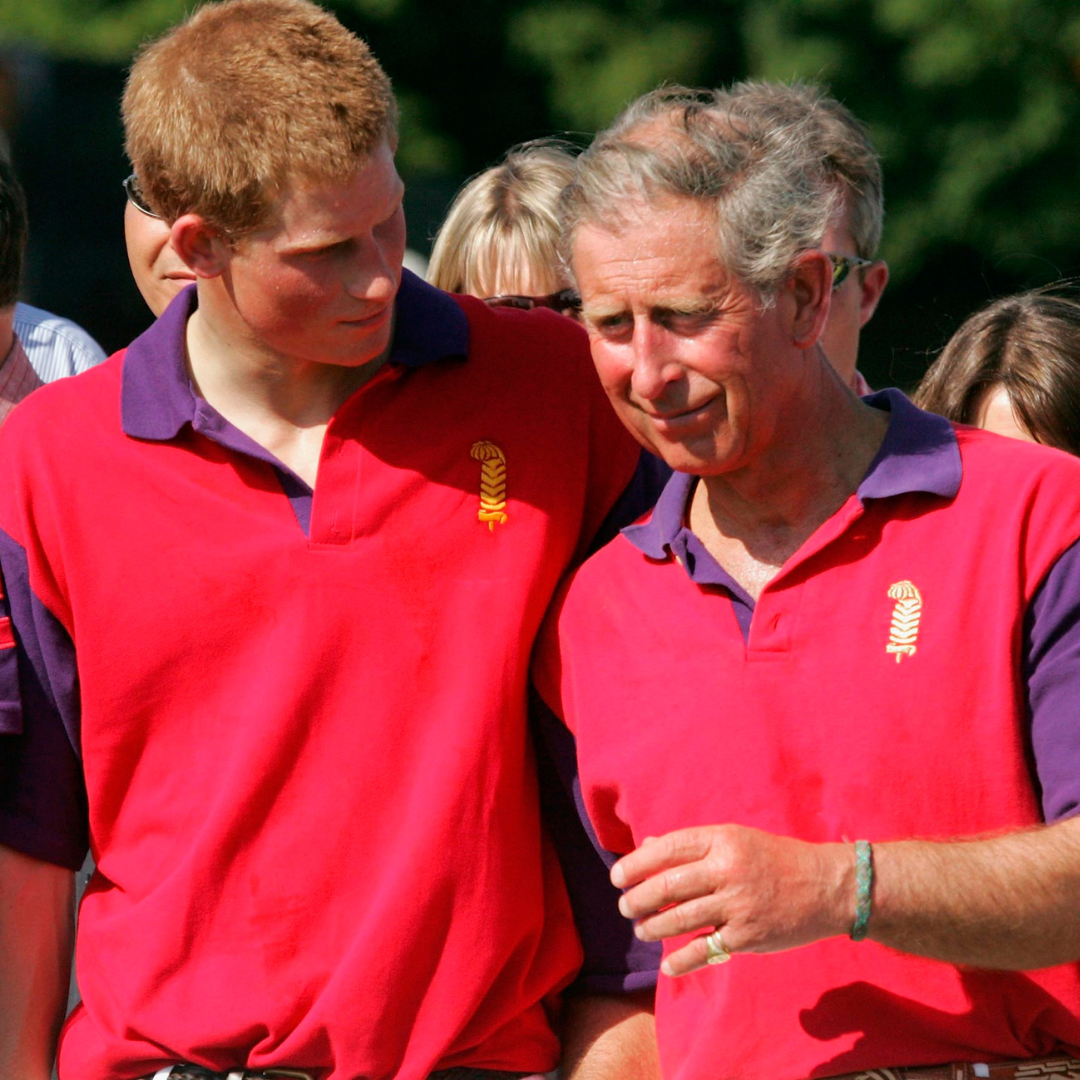 Prince Harry's calls and letters to King Charles 'go unanswered,' source claims
Prince Harry's calls and letters to King Charles 'go unanswered,' source claimsThings aren't looking up between the royals
By Iris Goldsztajn
